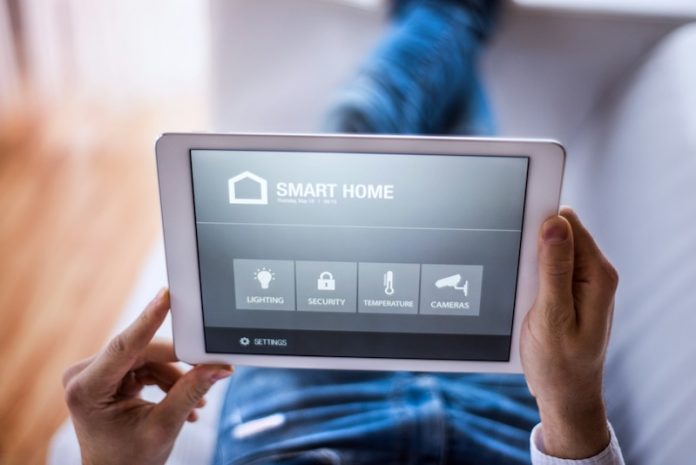
Imagine a home that helps you stay healthy. That’s the promise of smart home devices, which are becoming increasingly popular for their ability to make life more convenient and safer.
But smart home technology isn’t just about turning off lights with your voice or playing your favorite music on command. These devices can also play a big role in improving your health and well-being.
One of the most well-known benefits of smart home devices is their ability to monitor your health. For example, smartwatches and fitness trackers can measure your heart rate, count your steps, and even detect irregularities in your heartbeat that might signal a serious problem.
These devices can sync with apps that store your health data, allowing you to track changes over time and share the information with your doctor. Research has shown that these devices can help people stick to fitness goals and detect health issues earlier than they might otherwise.
Smart home technology can also be a lifesaver for older adults or people with chronic illnesses. Devices like smart speakers with voice assistants can remind users to take their medications on time.
Smart sensors placed around the home can detect if someone falls and send alerts to family members or emergency services.
Studies have found that these technologies not only improve safety but also give people more independence, allowing them to stay in their homes longer instead of moving to assisted living facilities.
Sleep is another area where smart home devices can make a big difference. Smart beds and mattresses can track your sleep patterns, adjusting their firmness or temperature to help you sleep better.
Some devices even monitor the air quality in your bedroom, alerting you if conditions aren’t ideal for restful sleep. Good sleep is essential for overall health, and these devices are designed to make sure you’re getting enough of it.
Smart home devices are also helping people manage stress and improve mental health. For example, smart lights can change color and brightness to create a calming environment, while white noise machines can help you relax or focus.
Some apps connected to smart speakers offer guided meditation or breathing exercises. Research has shown that creating a peaceful environment can reduce stress levels and improve mental well-being.
For people managing chronic conditions like diabetes or hypertension, smart home devices can make daily care easier. Smart blood pressure monitors and glucose meters can send readings directly to your smartphone, where you can keep track of your numbers and share them with your doctor.
These devices take the guesswork out of managing health and provide valuable data that can lead to better treatment plans.
The benefits of smart home devices go beyond individual health. They can also promote healthier habits for the whole family. For instance, smart refrigerators can track what food you have, suggest healthy recipes, and even alert you when you’re running low on fresh produce.
Smart water filters can monitor your water quality, ensuring your family has access to clean drinking water. These features encourage healthier choices and make it easier to stick to them.
While smart home devices offer many health benefits, there are challenges to consider. Privacy is a major concern for some people.
These devices collect a lot of personal data, and there’s always a risk that it could be accessed by hackers or used by companies in ways you didn’t agree to. It’s important to choose devices from trusted brands and take steps to secure your home network.
Another challenge is cost. Many smart home devices are still relatively expensive, making them out of reach for some people. However, as the technology becomes more common, prices are likely to drop, and more people will be able to enjoy their benefits.
In conclusion, smart home devices are not just about convenience—they have the potential to significantly improve health and well-being.
From monitoring vital signs to promoting better sleep and managing chronic conditions, these technologies offer solutions to some of the biggest health challenges we face.
As they become more affordable and secure, smart home devices could become an essential part of staying healthy and living well.
Copyright © 2025 Knowridge Science Report. All rights reserved.


